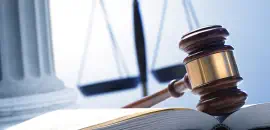

Key Takeaways
- Discretionary trusts give trustees the power to decide how and when to distribute trust assets and income to beneficiaries.
- Discretionary trusts can be used for a variety of purposes, such as tax planning, asset protection, and providing for minor or disabled children.
- Beneficiaries do not have an automatic right to receive distributions from a discretionary trust.
- Trustees must act in the best interests of the beneficiaries, but they have a great deal of flexibility in how they do this.
- Consultation with an estate planning attorney and financial advisor is critical to understanding the implications and benefits of setting up a discretionary trust.
How Do Discretionary Trusts Work?
A discretionary trust gives the trustee authority to decide how and when to distribute trust assets to beneficiaries. This structure can support tax and estate strategies, asset protection, and planning for minor or disabled children.
Here’s a high-level overview of the process.
Step 1: Establishing the Trust
- Settlor: The settlor creates the trust and sets the rules for how it will be managed and distributed. The trust can be created during the settlor’s lifetime as a living trust or through a last will and testament as a testamentary trust.
- Funding: The settlor transfers assets such as cash, property, or investments into the trust. Once transferred, the trust legally owns these assets.
- Trust Deed: Also called a trust agreement, this legal document outlines the trust rules, including the trustee powers and limits, named beneficiaries, and instructions for managing and distributing assets.
Step 2: Role of the Trustee
The trustee is responsible for managing and distributing trust assets according to the trust deed. Some other roles are:
- Decision-Making: The trustee decides how income or principal is distributed among beneficiaries.
- Management: The trustee manages investments and other assets held in the trust.
- Distribution: The trustee determines which beneficiary receives funds, how much they receive, when they receive it, and how often distributions occur.
The trustee may consider each beneficiary’s needs when making decisions.
Step 3: Beneficiaries and Distributions
- Potential Beneficiaries: Beneficiaries do not have an automatic right to trust income or assets. They may receive distributions at the trustee’s discretion.
- Variable Distributions: The trustee can adjust distributions over time based on changing circumstances and the settlor’s stated intentions.
- Asset Protection: Because beneficiaries do not have a fixed interest, their potential share may be protected from creditors or legal claims, depending on state law.
Step 4: Compliance and Oversight
- Legal Regulations: The trust must follow applicable state laws, including tax and reporting rules.
- Oversight: Some jurisdictions provide oversight to help ensure trustees follow the trust terms and act in beneficiaries’ interests.
- Recordkeeping: Trustees typically must maintain detailed records of the trust's management, investments, and distributions to help ensure transparency and compliance.
Step 5: Duration and Termination
- Duration: A trust may operate for a set period or continue as allowed under state law and the settlor’s instructions.
- Termination: When the trust ends, assets are distributed according to the trust deed, the trustee’s discretion, or final instructions from the settlor.
Trustees must act in the beneficiaries’ interests but have broad flexibility. For example, they may distribute more to one beneficiary than another or delay distributions based on circumstances.
There are many types of trusts designed for different situations. Reviewing available options can help you make an informed decision.
Before setting up a discretionary trust, speak with an estate planning attorney and financial advisor to review the legal, tax, and cost considerations.
What Are the Benefits of a Discretionary Trust?
Discretionary trusts are often used in estate planning and wealth management because they offer flexibility and long-term control. Here's a breakdown of some of the key advantages:
- Flexibility: Trustees can adjust distributions based on beneficiaries’ changing needs and modify investment strategies to preserve or grow assets over time.
- Asset Protection: Depending on the jurisdiction, a discretionary trust may help protect assets from creditors, legal claims, or division, while preserving family wealth across generations.
- Tax Management: Income can be distributed among beneficiaries to reduce overall tax liability. Trusts may also allow favorable capital gains treatment and help reduce potential inheritance or estate taxes, depending on applicable laws.
- Contingency Planning: The structure allows support for beneficiaries facing illness, disability, or other unforeseen events, and can include provisions for future generations.
- Control: Trustees manage distributions according to the settlor’s instructions, helping carry out their wishes and reduce the risk of asset misuse.
- Legal Benefits: A discretionary trust may offer some protection against lawsuits or legal disputes, and in certain cases, during marital breakdowns.
- Confidentiality: Trust details are generally not public record, which helps maintain privacy around family finances and assets.
- Special Needs Provisions: Trusts can provide structured, ongoing support for beneficiaries with disabilities or vulnerabilities, including educational assistance.
What Are the Potential Drawbacks of a Discretionary Trust?
While discretionary trusts offer advantages, they also come with considerations:
- Complex Management: Trust administration requires detailed recordkeeping, regulatory compliance, and careful decision-making by trustees, which can be demanding.
- Cost Implications: Establishing and maintaining a trust may involve legal, administrative, and tax-related expenses, and some jurisdictions impose specific tax rules on trusts.
- Potential for Conflict: Because beneficiaries do not have fixed entitlements, disagreements may arise over distribution decisions or perceived trustee bias.
- Legal and Regulatory Risks: Changes in laws or tax regulations may affect how the trust operates, and trusts can still face legal challenges.
- Limited Beneficiary Control: Beneficiaries generally have little control over how assets are managed or distributed, as trustees hold decision-making authority.
- Lack of Access to Capital: If the trust holds illiquid assets, accessing funds quickly may be difficult when beneficiaries need them.
- Long-Term Commitment: Some trusts are difficult to modify or revoke, and decisions made today may affect future generations in unintended ways.
- Ethical Considerations: Distribution decisions and asset protection strategies may raise concerns about fairness or responsibility in certain situations.
Before creating a discretionary trust, carefully review both the benefits and drawbacks with an estate planning attorney and financial advisor to determine whether it fits your circumstances.
How Much Does a Discretionary Trust Cost?
Setting up a discretionary trust involves several expenses. The total cost depends on the size and complexity of the estate, the attorney’s fees, and state laws. While it's challenging to provide a precise cost without specific details, let's explore the general financial components:
- Attorney's Fees: Often range from a few thousand dollars to several thousand for a straightforward trust. Costs increase if the estate includes multiple assets, varied investments, or complex family circumstances.
- Trustee Fees: Professional trustees or banks typically charge a percentage of trust assets annually. Individual trustees may charge less but can still receive compensation and reimbursement for expenses.
- Administrative Costs: May include filing fees, tax return preparation, and accounting services. Larger or more complex estates often require additional accounting support.
- Asset Management Fees: Investment advisory fees apply if assets are professionally managed. Property management fees may apply if the trust holds real estate.
- Ongoing Operational Costs: Expenses related to distributing income, maintaining records, and managing documentation. Professional services may increase these costs.
Because costs vary widely, request detailed estimates from attorneys, trustees, and other professionals before establishing a discretionary trust.
Is a Discretionary Trust Right for You?
Choosing a discretionary trust depends on your personal, financial, and family situation. Here are several key considerations to evaluate.
Financial Situation
- Costs: Can you handle the setup costs and ongoing administration expenses?
- Assets: Do you own assets such as real estate, investments, or a business that may work well in a trust?
Family Circumstances
- Beneficiary Needs: Do your beneficiaries have different, changing, or special needs that flexible distributions could address?
- Family Dynamics: Will a trust structure function smoothly without creating tension or conflict?
Estate Planning Objectives
- Wealth Preservation: Is your goal to pass assets to future generations?
- Distribution Wishes: Do you want control over how and when assets are distributed after your death?
Tax Considerations
- Tax Efficiency: Could a trust help manage or distribute assets in a tax-efficient way?
- Tax Responsibilities: Are you prepared to meet ongoing tax filing and reporting requirements?
Control and Management
- Loss of Direct Control: Are you comfortable giving up personal ownership of assets placed in the trust?
- Trustee Selection: Do you have someone capable and willing to serve as trustee?
Legal and Regulatory Environment
- State Laws: How do your state’s legal and tax rules affect this type of trust?
- Asset Protection: Do you want a structure that may help protect assets from certain claims or creditors?
Ethical Considerations
- Fairness: How does discretionary distribution align with your views on treating beneficiaries fairly?
- Family Responsibilities: Does this structure reflect your values regarding family and wealth transfer?
Risk Tolerance
- Legal and Tax Risk: Are you comfortable managing potential legal and tax complexity?
- Future Changes: Can you adapt to possible changes in tax laws or regulations?
Special Circumstances
- Special Needs: Do you have beneficiaries who require additional oversight or structured support?
- Contingency Planning: Do you want a structure that addresses unexpected life events?
A discretionary trust is not right for everyone. An estate planning attorney and a financial advisor can explain the costs, benefits, and legal implications so you can make an informed decision.
Final Thoughts
A discretionary trust offers flexibility, asset protection, and tailored support for beneficiaries, but it also involves costs and legal responsibilities. The right choice depends on your financial situation, family needs, and long term goals. An estate planning attorney and financial advisor can help you decide if it fits your overall plan.
Frequently Asked Questions
What happens to a discretionary trust when the beneficiary dies?
When a beneficiary of a discretionary trust dies, the trust assets do not become part of the beneficiary’s estate and remain in the trust. The beneficiary’s right to receive distributions ends. The trustee reviews the trust deed for any provisions related to death and then decides, at their discretion, how and whether to distribute assets to the remaining or newly eligible beneficiaries.
Can you remove a beneficiary from a discretionary trust?
It is generally possible to remove a beneficiary from a discretionary trust, but the process depends on the trust deed and the specific circumstances. The trust deed may outline valid reasons and required procedures. Trustees typically cannot remove a beneficiary unless the deed allows it and all required consents are obtained.
Can a beneficiary be a trustee of a discretionary trust?
Yes, a beneficiary can serve as trustee of a discretionary trust, but added safeguards are needed to manage conflicts of interest, unfair distributions, legal disputes, and potential tax consequences. These risks can be reduced by appointing co-trustees, limiting the beneficiary’s authority over distributions, requiring joint or unanimous decisions, documenting actions, allowing trustee changes, and having an estate planning attorney review the trust document.
Is a discretionary trust revocable or irrevocable?
A discretionary trust can be revocable or irrevocable, depending on the settlor’s goals and the terms of the trust. A revocable trust allows the settlor to retain control and make changes, but it offers limited asset protection and does not remove assets from the settlor’s taxable estate. An irrevocable trust generally cannot be changed, removes assets from the settlor’s estate, and may provide stronger asset protection and potential tax advantages.
























